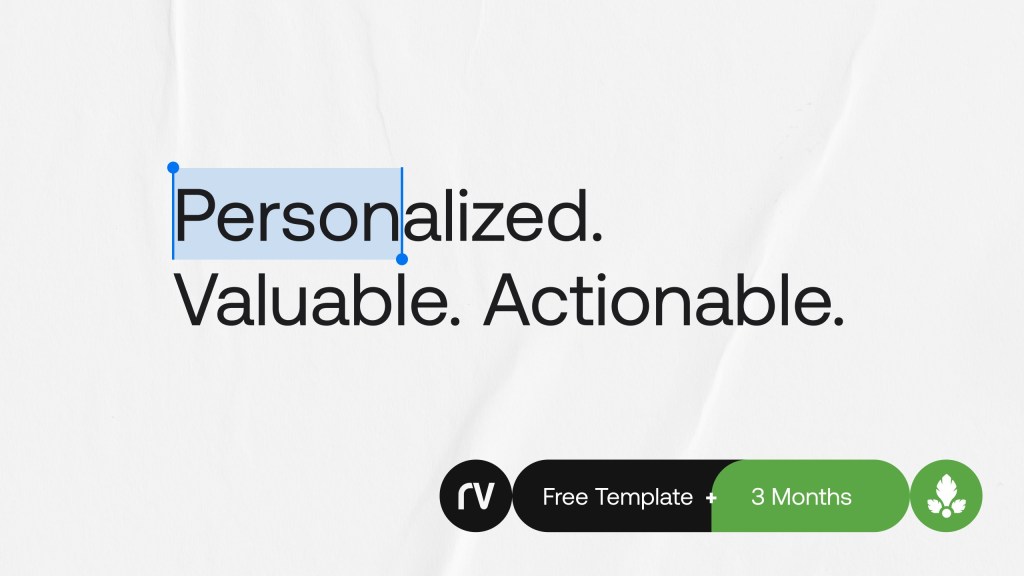Let’s talk about what needs to happen—and what doesn’t
Without clear communication and transparent expectations, the relationship between client and agency is doomed. It will fail to thrive. Fingers will be pointed, passive-aggressive emails will be hurled, confusion will ensue. Tensions increase when things are not ironed out from the beginning. As a business that is looking to hire an agency, you will likely be confronted with conversations about budget in regards to your RFPs (Requests For Proposals). Your instinct might be to cringe when someone brings up the formality of numbers and processes. Maybe you want to avoid a budget conversation like the plague. Or you might be thinking an RFP is the alpha and omega; the be-all, end-all summation of a project and an agency’s role in it. But the best approach might not be what you expect.
Both of these areas are important for a client to acknowledge prior to hiring an agency. A decision on budget is a prerequisite for success. Period. But the fate of RFPs is more murky—there are pitfalls in how they are approached (we’ll dig through those nuts and bolts below). If done right, clear communication on both of these topics will breathe life into the relationship between client and agency, for the benefit of the project and the creative process.
Budget
Budget is a must-discuss before a project even thinks about liftoff. Hesitancy to discuss budget reveals which client is looking to pay the least amount of money for the job, instead of the client that is willing to pay the fair amount to get the job done right. A clear decision about the budget will do three things:
- It will directly contribute to the financial prosperity of both parties
- It will ensure the quality of work that is produced for the project
- It will sharply influence the level of harmony between the agency and client
Picture this: you’ve come across an agency’s website and you love their work. You may have even heard good feedback from their past clients. You could see how their creative expertise could be an asset for a project you have in mind. You’re ready to talk. Unless you somehow have their staff’s direct contact information, you’ll likely have to fill out a contact form on their website. And more often than not, agencies request some information about budgets in these forms from the get-go. Is it because we’re all heartless money-grubbers? Hardly. Let me explain.
Think about it from an agency’s perspective: our goal—our commitment to you—is to deliver top quality work. No matter what. But if a potential client leaves this form blank and leaves no inkling of budget, we have no reference point to accurately begin a proposal. There are a lot of ways to go about achieving your goals. The solutions vary, from the type of technology used, to the sort of engineering tapped, to the depth and breath of the creative process, to the resources required. The cost varies, and we have no idea how much you’re willing to spend. Is the moon truly the limit? Or are we landing somewhere amongst the stars? If a client gives us no guidance on budget, we’ll assume you want top shelf everything, and when we come back to you with a proposal it may far exceed what you’re willing to pay. And then you’ll feel defeated, and so will we. And that wastes everyone’s time. Our mission is to achieve your goals in a way that aligns with your budget and timeframe. If through those conversations we discover we aren’t the right fit, then our goal is to point you in the right direction to find a better match.
Think of it like this; you purchased a plot of land and are ready to build a new house. Every decision that’s made from that point forward is based on your budget. If you have millions of dollars, the footprint will be bigger, the finishing touches will be more expensive, and the house will be worth more. If you don’t have millions of dollars, you need to find ways to still build what you need—and what you want. Maybe you construct a one story home instead of two. Maybe the finishing touches will be more affordable. It all depends.
Talking about budget up-front streamlines the selection process for businesses to choose an agency, and impacts whether the resulting agreement includes appropriate terms that satisfy your requirements. When addressed at the beginning, it eliminates feelings of pressure, and avoids cornering you into paying above your budget or compromising our work. It’s a necessary step to take early on that will serve as the solid foundation for the client-agency relationship.
RFPs
Some companies post an RFP to get the word out that they’re hiring an agency. And sometimes these can be positive. The good intent of an RFP is to serve as a starting point to explain the project to a potential agency. However, in many instances and if they are relied on too heavily, RFPs can be bad for everyone. They can hinder the project, lead to hiring the wrong agency and alienate the right one.
RFPs tend to include an overview of the company, project features, usability requirements, technical requirements and deadlines. Sometimes they include more, sometimes less. On the surface this information is necessary, but let’s look at how RFPs can fail:
- RFPs are generally put together by the wrong people in an organization, like a procurement department. The folks in these positions usually don’t fully understand what they are asking for. They lack the insight needed to accurately pin down details or scope of a project that is outside their area of expertise.
- These RFPs are often generic. Black and white, impersonal and cold document templates that lack the rich details and full color story that agencies need to produce solid work.
- Their main function is to get as many bids as possible and, more often than not, pick the cheapest one. It is a race to the bottom. The hope is the company will cast a wide net, so they can play a numbers game to see how little they can pay for the job.
- Many of these RFPs do not talk about the client’s budget, which, as previously stated, is a huge factor for determining how an agency will go about addressing their needs.
- Many RFPs will request “spec work,” which asks the agencies for free creative work to showcase how they would approach the project. Spec work is detrimental to a project and many negative outcomes are produced from spec work. So much so that there is a website dedicated to this topic — NO!SPEC. Suffice it to say that it’s a tall order to ask an agency to pull resources off paying projects with deadlines to whip up designs without a discovery phase to learn about the project, company, and market. We aren’t putting our best foot forward and when we do, we’re not sure if our hard work will be used without our consent or any monetary compensation, as it has in the case of Eponymous Superfood. Reputable agencies say no to spec work.
Perhaps most importantly, there’s very little learning about the agency. Clients and agencies miss an opportunity to explore the chemistry of a potential relationship. How will they work together in a real-world setting? It’s impossible to determine how they could be a good fit from a bland document. It’s like going on a dating site, filling out a form with sparse details, and then picking a partner from an algorithm’s results. They expect an RFP to produce magic. But it eliminates the fireworks that make the relationship extraordinary.
For these reasons, many established agencies are turned off by RFPs. They understand they cannot fully encompass the work they are capable of performing, and offer a poor snapshot of the project. Conversely, some newer agencies may jump at the chance to reply to an RFP, in hopes of landing a client that would usually be out of reach. The issue becomes, the company who is posting the RFP is not reaching both groups. Established agencies may write them off, and newer ones may jump at the chance to prove themselves but lack the expertise needed for the project. In the end the work suffers, simply because of the means to source the right agency for the job.
RFPs are not hopeless. IF they are used as a general starting point to begin a conversation, they may expedite the communication of needs for the project. However, if you are going to use an RFP, they should NOT:
- Tell the agency how to solve your problem. If you already know, then why are you asking? There’s no quicker way to stifle creative thinking and extinguish ideas that can improve your brand.
- Characterize specific deliverables for the project. The agency is already set up to fail by agreeing to deliverables that may be irrelevant once they get a chance to dig into the project. It is impossible to accurately ascertain what the project needs at the start. Questions need to be asked, and the right people in the organization need to be answering them.
- Ask for work based on corporate slide decks, research projects or other one-note documents from the company. The agency will not be given a chance to explore your brand effectively, and will be boxed in creatively from the beginning using existing material.
- Fail to disclose a proper budget and appropriate timeframe for the project.
- Research and prequalify vendors, which is a much better process and has a much higher chance of success than an open bid.
If the goal is to find the cheapest option, then an RFP is an effective solution. But if the intent is to find the right partner to produce the best work for the project, there is a better route. The industry is trending in the direction of eliminating RFPs due to their ineffectiveness.
At Rareview, we prefer to start a conversation instead of using an RFP. We discuss key questions that help jumpstart the relationship and dig into the real information we need to make the project successful. We require a conversation about budget so that we can deliver a solution that works for that client’s situation, which enables greater transparency and compatibility for everyone.
Rareview’s goal is to be a partner with our clients. We attack tough conversations with boldness, because being timid is not going to get results. When you work with us, expect the truth. Let’s keep having these tough conversations so we can all get to the bottom of what works best for our industry—both for clients and agencies.





Great piece!